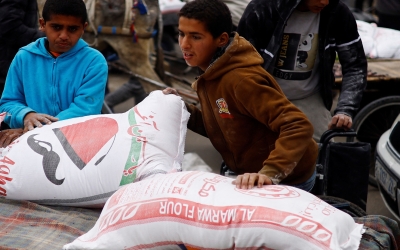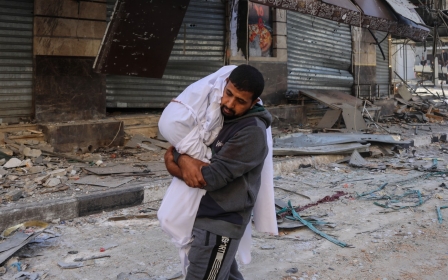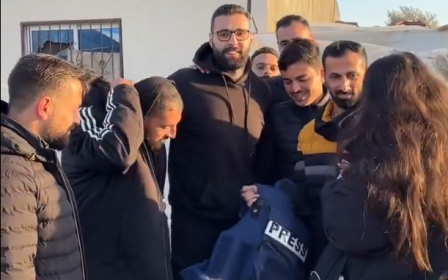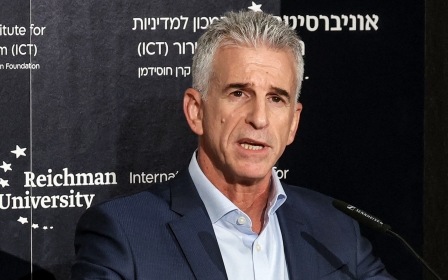War on Gaza: Israel and Hamas downplay Qatar's 'agreed' Gaza truce proposal
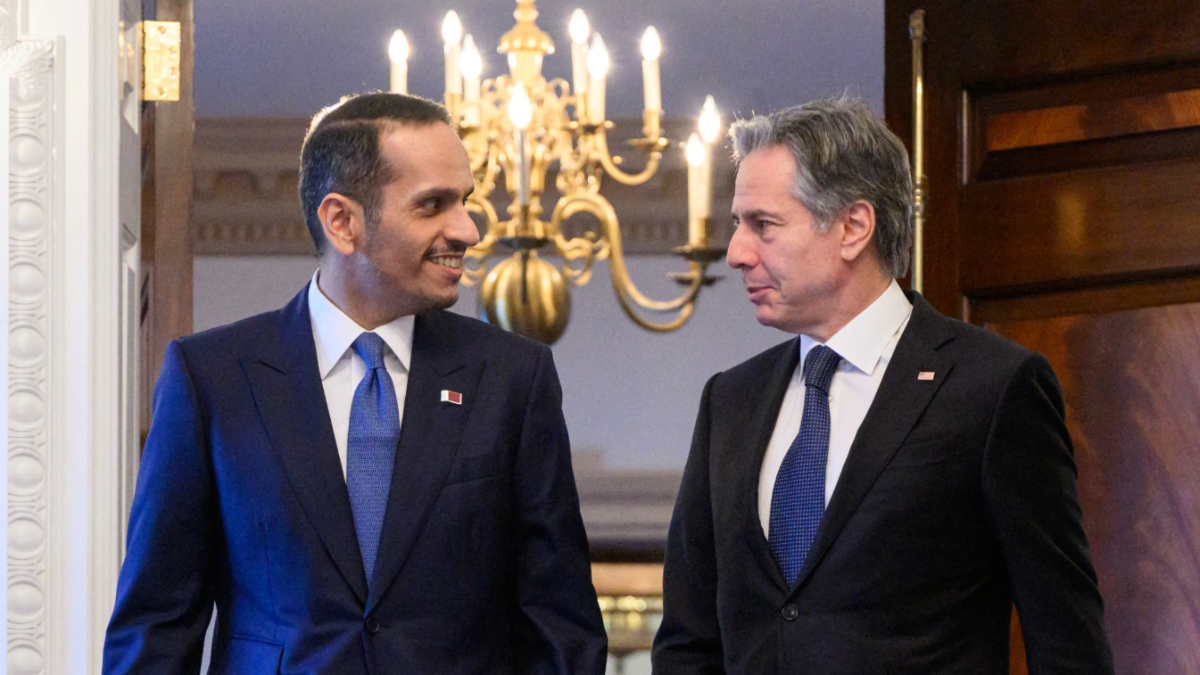
The framework for a truce to fighting in Gaza that has been agreed to by Israeli, US, Egyptian, and Qatari officials is set to be delivered to Hamas, as fears grow that fighting in the enclave could spark a regional war.
“We are in a better place than we were a few weeks ago,” Qatar’s prime minister, Sheikh Mohammed bin Abdulrahman al-Thani said at a forum hosted by the Atlantic Council in Washington DC, on Monday.
Thani’s comments come after CIA director Bill Burns travelled to Paris, France, over the weekend for high-level talks with Israeli, Egyptian and Qatari officials.
Thani suggested that the officials had made progress in the talks and reached a framework for a deal which he said "might lead to a ceasefire permanently in the future”.
The Hamas-led attacks on southern Israel which sparked the war saw 1,139 people killed and over two hundred taken back to Gaza as hostages.
New MEE newsletter: Jerusalem Dispatch
Sign up to get the latest insights and analysis on Israel-Palestine, alongside Turkey Unpacked and other MEE newsletters
He appeared to confirm reports that the truce would see women and children hostages held in Gaza released, with more humanitarian aid also entering besieged Gaza in exchange for a pause in fighting. Over 26,000 Palestinians have been killed in Gaza.
The truce could last for 60 days, according to US and Israeli media reports, substantially longer than a deal struck in November that freed more than 100 hostages in exchange for Palestinian prisoners.
“The framework that yesterday has been agreed upon with all the parties was a framework based on what’s been proposed by the Israelis and a counterproposal by Hamas, and we tried to blend things together,” Thani said.
Truce efforts
Progress on a deal would come as tensions increased to new highs, with a drone attack on a US base in Jordan killing three US soldiers and wounding dozens more.
President Biden blamed the attack on “radical Iran-backed militant groups operating in Syria and Iraq”, and US officials have vowed to respond.
Speaking on Monday, Thani said, “I hope that nothing would undermine the efforts that we are doing or jeopardise the process" to end the fighting in Gaza.
A key sticking point in the deal has been Israel’s refusal to agree to a permanent ceasefire in Gaza, which Hamas has set as a precondition for any pause in fighting and the release of hostages.
Prime Minister Benjamin Netanyahu’s office was quick to squash rumours that the two sides were nearing a deal, saying “the reports…are not correct and include conditions that are not acceptable to Israel”.
Hamas also appeared to reject the Qatari official's statements.
Hamas demands complete ceasefire
Senior Hamas official Taher al-Nunu told AFP that the group wanted a "complete and comprehensive ceasefire, not a temporary truce”, adding that once the fighting stopped, Hamas would be willing to discuss "the rest of the details”, including hostage releases.
Meanwhile, at a press conference in Beirut on Monday, senior Hamas official Osama Hamdan said Israel was not serious about striking a ceasefire and that rumours of a deal were aimed at “satisfying the families of those detained by the resistance”.
Netanyahu has come under growing pressure from hostages’ families to strike a deal.
The negotiations come amid heavy fighting in Khan Younis. In the last 24 hours, Israeli bombing killed more than 215 people, according to the Palestinian health ministry.
Tensions between Tehran and Washington are rising as the humanitarian situation in Gaza deteriorates. The top donors of Unrwa, the UN agency for Palestinian refugees, have halted funds to the agency over Israeli allegations that some staff were involved in Hamas's 7 October attack.
Qatar, which hosts Hamas’s political leaders at the request of the US, is also under pressure to demonstrate that it can leverage its ties to the group and sway in Gaza to free the hostages.
Middle East Eye delivers independent and unrivalled coverage and analysis of the Middle East, North Africa and beyond. To learn more about republishing this content and the associated fees, please fill out this form. More about MEE can be found here.


